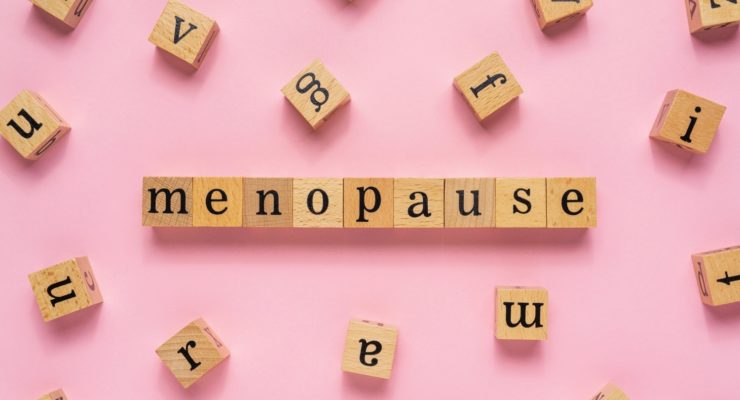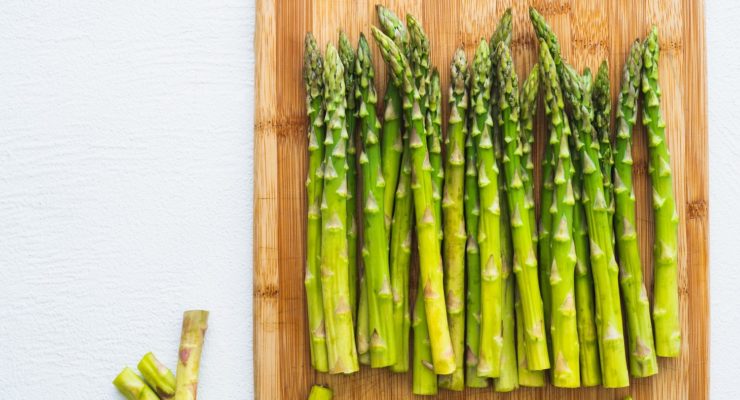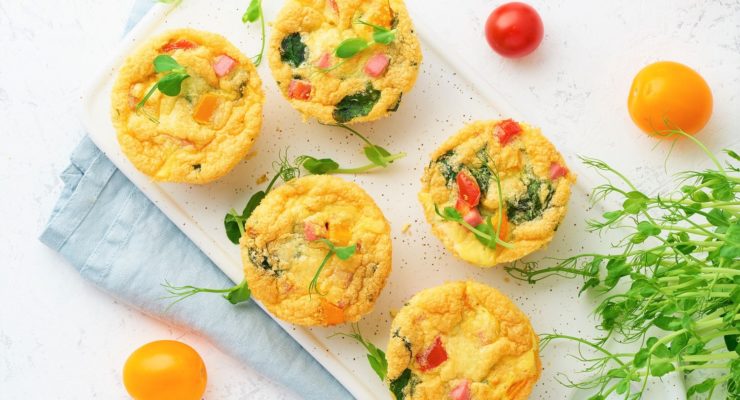7 Diet Tweaks To Help You Sail Through Menopause
Article posted in: Diet & Nutrition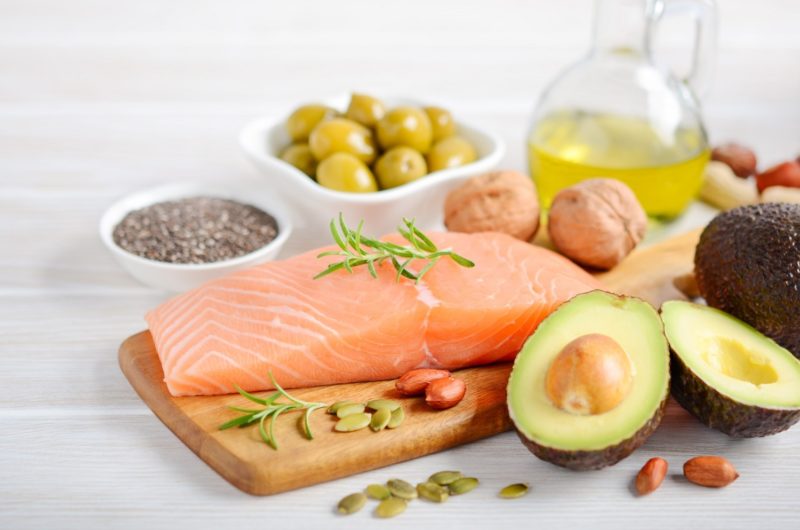
When it comes to menopause and weight, the odds may not be in your favor. Research has found that most women gain anywhere from around five to eight percent of their baseline body weight within about two years after their last menstrual period. What’s worse, the rate of fat gain doubles and the loss of muscle mass declines so it can be even harder to lose that “meno-pot”—belly fat—you gained.
Changes in hormones may be partially to blame for this weight gain, but it’s not the only cause. Studies have also found that women aren’t as physically active at this stage of life.
Before your 50s, you may have been exercising without knowing it, but the days of running after toddlers and up and down the stairs doing 12 loads of laundry a week are probably behind you. So unless you make time to exercise by walking, running or going to the gym—sometimes tough to fit in a busy schedule—you’re probably not working off as many calories as you once did without even trying.
This is actually good news. It means that hormones are not destiny. You have some control. Adding more physical activity to your daily life and making some smart, healthy tweaks to your diet can improve your odds not only of beating menopause weight gain, but in curbing some of the less pleasant side effects of menopause such as hot flashes.
As motivation, remember that weight gain isn’t just a cosmetic issue. This is the time in your life when your disease risks go up: Fading estrogen can trigger hypertension and high cholesterol, major risk factors for heart disease and stroke. Your risk of diabetes and cancer also spike as does your chance of developing the bone-thinning disease, osteoporosis. Exercise and a few dietary changes can make the difference there, too.
Here’s what you should consider stocking up on for your menopause diet —and a few choices to reconsider:
The Best Foods for Menopause
1. Lean Protein
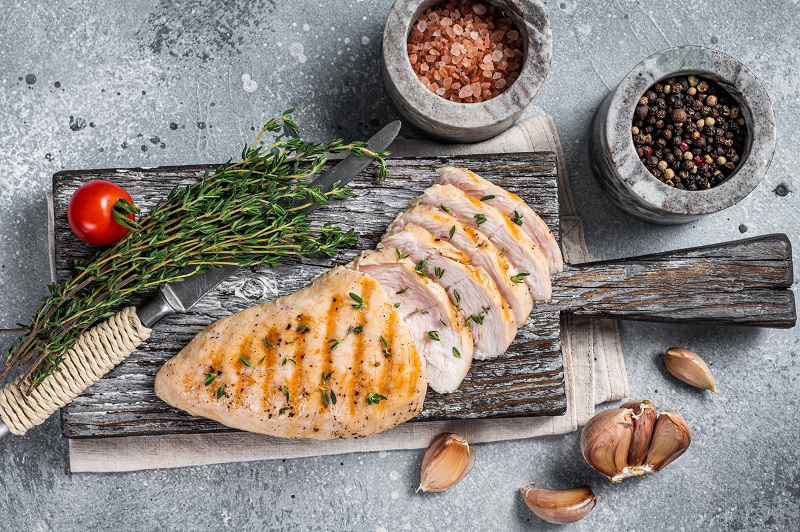
As we age, our protein requirements actually go up, particularly during stressful times (including when dieting!). Unfortunately, our bodies don’t process protein as efficiently as they once did, so we tend to lose calorie-burning muscle mass.
Studies have found that older adults who eat more protein are more likely to age without disability. Women need 0.8 grams of protein per 2.2 pounds of body weight daily: That’s about 55 grams of protein for a 150-pound woman.
Don’t worry: That’s not a lot of food. A three-ounce serving of skinless white meat chicken is 28 grams of protein; 3 ounces of salmon contains 22 grams; a 6-ounce serving of Greek yogurt has 18 grams; and half a cup of cooked pinto beans (think chili) has 11 grams of protein.
Bonus: Protein can help you feel fuller longer so you may eat less. Keeping it lean can help you stave off cardiovascular risk factors such as high cholesterol.
2. Calcium-Rich Foods
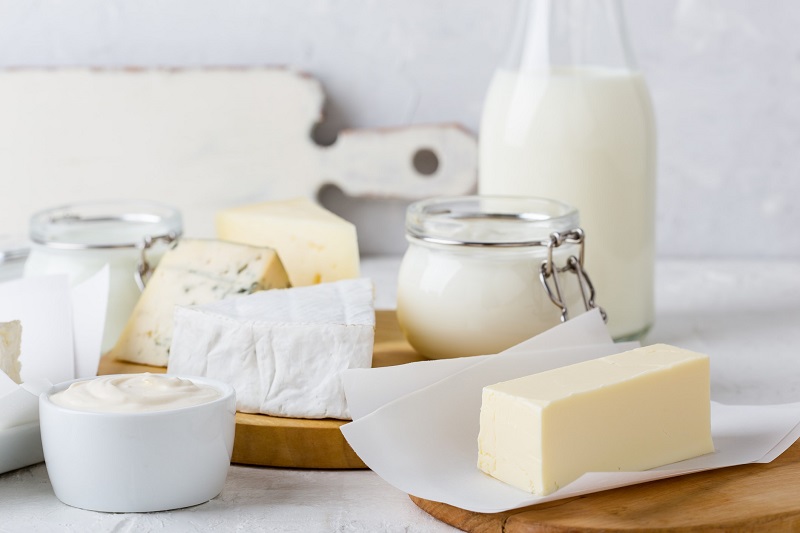
Include the usual suspects: milk, yogurt and low-fat cheese. But you should also add some more unusual sources of calcium to your healthy diet. These include kale, spinach, collard greens, sardines and calcium-fortified foods such as orange juice or tofu.
They do multiple duty. First, calcium will help protect your bones which may start to thin without estrogen to fortify them. This can lead to fractures or breaks.
Second, calcium-rich dairy products are also abundant in protein so they can contribute to curbing your hunger. And third, leafy green veggies are full of fiber and you can eat so much of them, you may find it much easier to control your appetite.
3. Veggies

Sure, they are good for your overall health. But a review study, published in the journal Nutrients, also found that people who eat four or more servings of vegetables a day reduce their risk of weight gain, and that increased veggie intake can help you lose weight.
That’s because veggies, loaded with nutrients, aren’t loaded with calories so you can eat, well, loads of them. That can fill you up. Research shows that people who eat a salad before a meal tend to eat fewer calories at the rest of their meal. Add at least a cup of veggies to any meal and between the fiber and water content, you may have found your best weight loss tip ever.
4. Omega-3 Fatty Acids
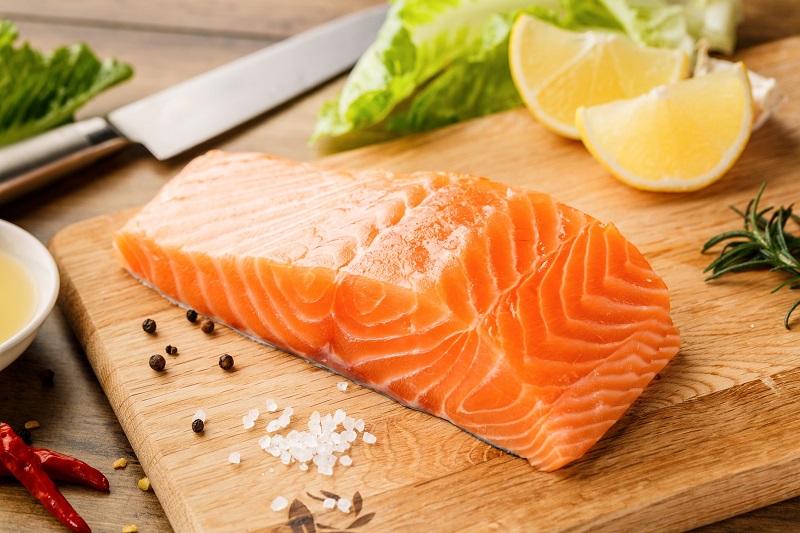
Fish such as salmon, mackerel and tuna, plus other types of foods like trendy chia seeds, walnuts and soybeans are all high in omega-3 fatty acids, which are associated with a lower risk of heart disease. But they may also help ease your hot flashes and depressive symptoms you may experience during perimenopause and after menopause.
In one study, published in the journal Menopause, researchers from Harvard Medical School found that a significant number of women who took omega-3 supplements had fewer hot flashes and experienced better moods as a result.
Foods to Avoid During Menopause
Now you know what to eat. There are some things that you may want to limit, particularly if you’re experiencing certain symptoms of menopause. They include foods and drinks that already mimic hot flashes by causing blood vessels to dilate or contract.
5. Caffeine
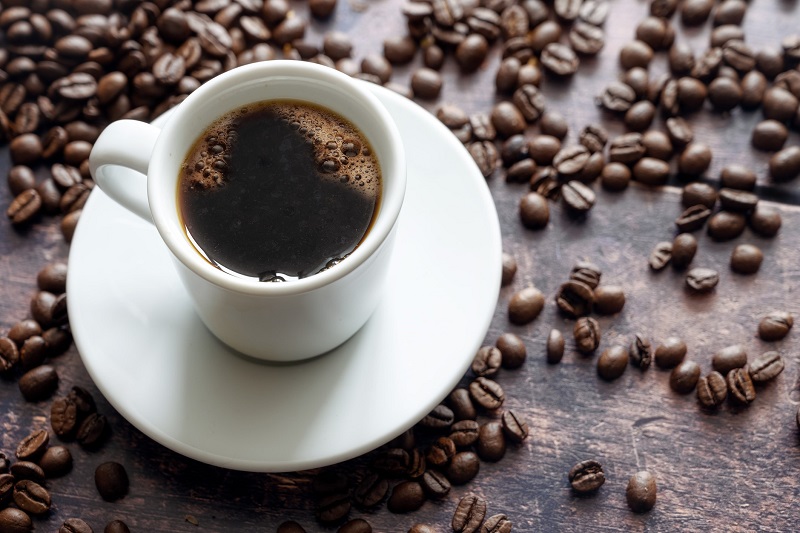
Studies on the effects of caffeine and hot flashes are mixed. However, there’s some evidence that drinking coffee and, to a lesser extent, tea may make hot flashes and night sweats (which can wake you up) worse.
On the other hand, a 2014 Mayo Clinic study turned up some positives to caffeine consumption: Women who had their daily cuppa joe had improvements in mood, memory and concentration. If hot flashes aren’t your problem, keeping caffeine on the menu might be a good thing.
6. Alcohol

Again, the results of studies on alcohol consumption during perimenopause and after menopause show conflicting results. Some show perimenopausal women who drink have fewer hot flashes, while others show that drinking increases the risk, particularly among post-menopausal women.
The take-home: Drinking before you hit menopause may help prevent hot flashes, while after menopause a drink could make things worse. Keep track of your symptoms and what you eat or drink to see if you can still have a drink or if you need to abstain until the hot flash storm passes.
7. Spicy foods
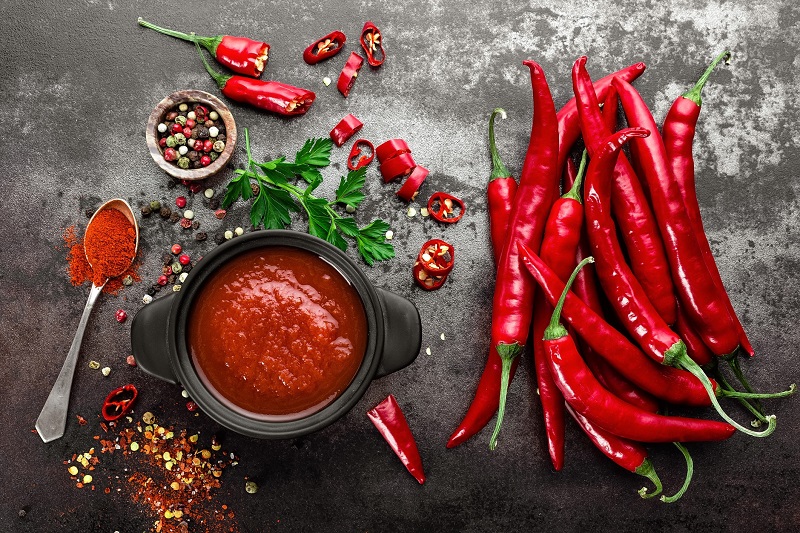
Perimenopause may be the time to rethink your love of hot sauce and chili if you find yourself “blushing” after you eat them. Spicy food can have the same effect on blood vessels as waning estrogen and may trigger a hot flash.
Get the food and tools you need for a lifetime of health, wellness and weight loss. You need a plan that understands your unique needs during and after menopause. Created for women by women, Complete 55 by Nutrisystem is specifically designed for women 55 and up. Learn more and get started >

